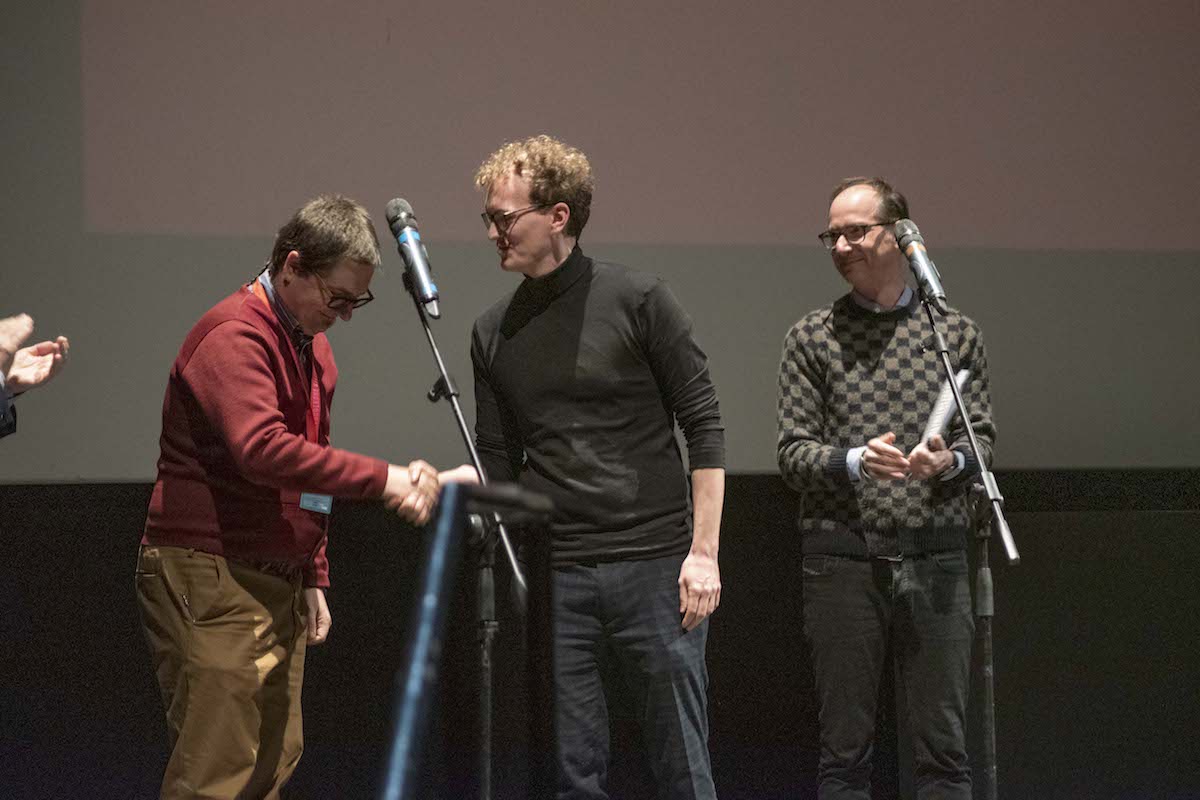
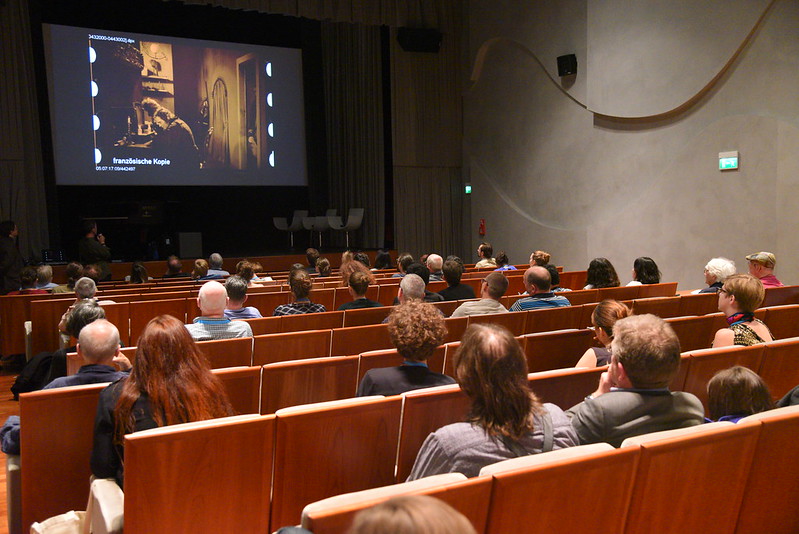
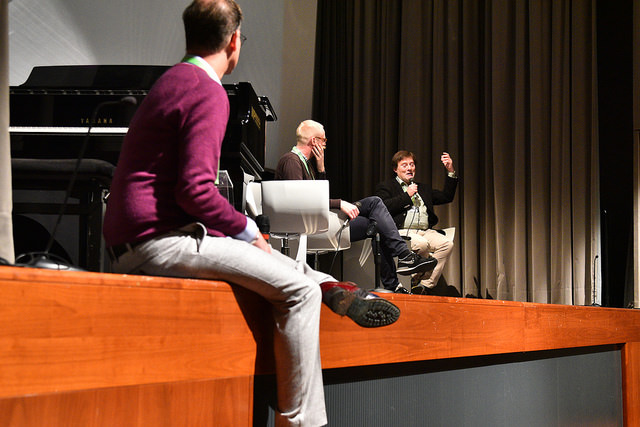
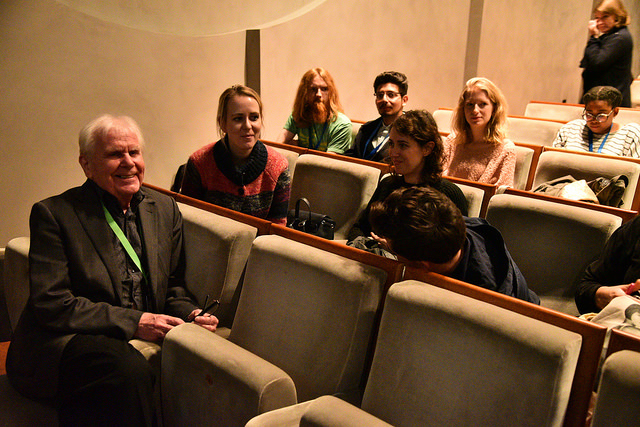
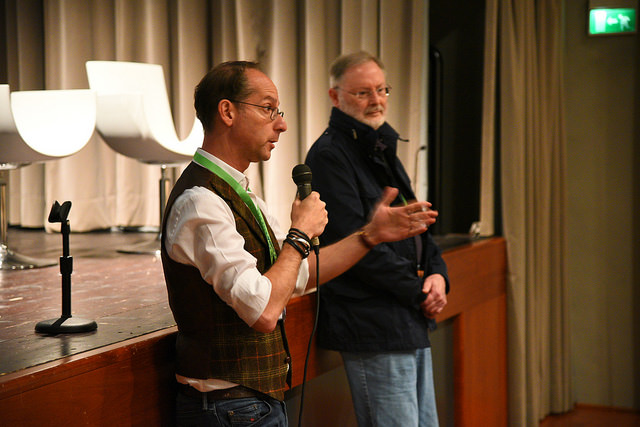
Due to the particular circumstances of our current COVID-19 world, this year’s Collegium, like the Festival itself, will be an online-only initiative. Participants will meet daily via an online platform to discuss films and topics related to the programs shown on the Giornate’s specially created site. Unlike previous Collegiums, these meetings will be a considerably more intimate affair and are not open to the public; participants will be limited to the Collegians themselves, mentors, moderators and the scholars invited each day to deepen an understanding of the films we’ve seen, and to facilitate dialogue.
The Collegium’s aims remain unchanged: to attract new, young generations to the discovery of silent cinema and to infiltrate these newcomers into the very special community that has evolved around the Giornate during its three decades. It is designed to take advantage of the unique conditions of the Giornate – a highly concentrated one-week event; the possibility to see an extensive collection of rare archival films; the presence in one place and at one time of many (perhaps most) of the world’s best qualified experts in film history – scholars, historians, archivists, collectors, critics, academics, and just plain enthusiasts. Rejecting the conventional “summer school” style of a formal teaching programme, the Collegium returns to a fundamental, classical concept of study, in which the impetus is the students’ curiosity and inquiry. Instead of formal lectures and panels, the daily sessions are designed as “Dialogues”, in the Platonic sense, when the collegians sit down with groups of experts in various disciplines. The Dialogues are designed not just to elicit information and instruction, but to allow the collegians to make direct personal and social connection with the Giornate habitués and to discover them as peers whom they can readily approach, in the course of the week, for supplementary discussion.
To focus their inquiry, the members of the Collegium collaborate on the production of a collection of papers on themes emerging from or inspired by the experience of the week. Each collegian is required to contribute an essay, and the criterion is that the principal source must be the Giornate programme, or conversation and interviews with the scholars and experts to whom the week facilitates access. It has to be, in short, a work that could not have been produced without the Giornate experience. The papers will be published on the Giornate website, and the best one will be awarded the annual Collegium prize, inaugurated in 2008 and deeply appreciated as a recognition of the achievement of the Collegium.
PARTICIPANTS 2020
Collegians: Bob Boddingham (United States), Arianna Crespi (Italy), Isabella Hernandez (Venezuela), Shiyang Jiang (China), Dario Kamyar (Iran), Samuel Lopez Linares (Spain), Christian Lovato (Italy), Letícia Magalhães (Brasil), Travis Merchant (United States), Cecilia Ramirez (Mexico), Pablo Roldan (Mexico).
Mentors: Aisha Brady (United Kingdom), Kaleb Andreall Brown (United States), Sofia Elizalde (Argentina), Florian Hoehensteiger (Germany), Lydia Koerner (United States), Taji Rafferty-Perkins (United Kingdom), Aleksandra Tomkiewicz (Poland).
Winners
2019 Stephan Ahrens: Unheard music. Notes on silent music moments
2018 Sarah Rahman Niazi: Le Giornate del Cinema Muto and the encounter with Indian silent cinema
2017 Sebastian Köthe: Silent Film as Ambiguous Heritage
2016 Danielle Crepaldi Carvalho: Blessed Tears: the Human Soul Unveiled in Les Misérables by Henri Fescourt (1925-26)
2015 Guilherme Maggi Savioli: The Outcasts, or notes on a revolution
2014 Cesar de la Rosa Anaya: Aura Footprints of Early Cinema
2013 Thomas Clearly: The Accidental Artists: Art in Early Cinema
2012 Tom Brockley: Preserving a ‘Way of Seeing’: Post-archival Film Preservation
2011 Raphael Luce: Born by accident
2010 Ioana Salagean: Le mythe et le retour
2009 Polly Ellen Goodwin: How to Watch a Silent Film: The View from the Pit
2008 Maria Belodubrovskaya: Understanding the Magic:Special Effects in Ladislas Starewitch’s L’Horloge magique


 Italiano
Italiano